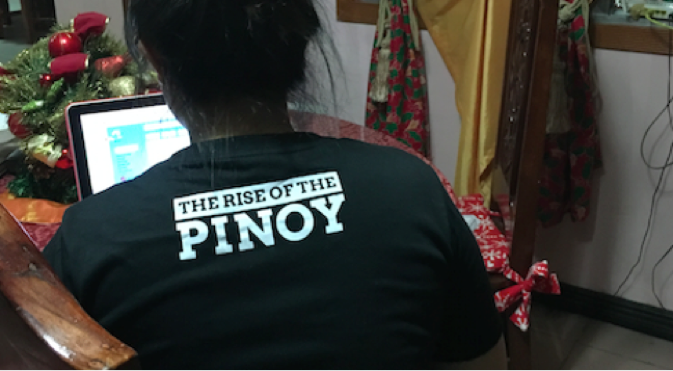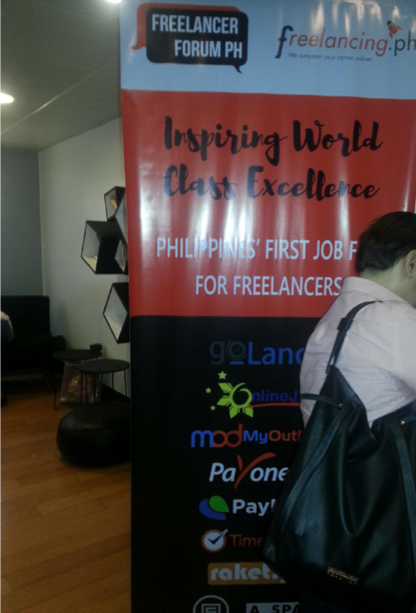Online freelancing often conjures an impression of triviality; a limbo of sorts for those unable to secure formal employment or an ideal occupational set-up afforded by tech-savvy bohemians who couldn’t care less about a regular income. It wasn’t until governments and venture capitalists had begun branding digital labor as a way of the future that the rest followed.
Breaking further away from its preconceived stigma, some have even gone so far as to say that the third industrial revolution will be driven by the digital workforce. But more than anything, online work is a fast-emerging market segment that is rapidly gaining attention as a prospective panacea for unemployment and economic growth.
Almost a decade has passed since the global financial crisis. But to this day, its repercussions continue to plague economies, particularly those in Southeast Asia and Sub-Saharan Africa. Drawing from a report by the International Labour Organization, global unemployment is expected to continuously rise alongside the prevalence of informal and intermittent jobs which are characterized by low pay and little to no social protection.
In contrast, information and communication technologies (ICTs) have been evolving rapidly – paving the way for new possibilities and potentialities for progress in the midst of pressing socioeconomic challenges. Particularly, increasing global connectivity and the relative affordability of gadgets have heralded the rise of online platform labor or digitally mediated service work. Among these companies include Upwork (Formerly Elance-oDesk), Freelancer.com, or Onlinejobs.ph.
Marketed as a geographically-flexible and competitive source of income, digital labor appears to be a highly viable and attractive option, especially in countries where employment conditions are fraught with financial stagnation and socio-economic tensions. Ranked as having the worst unemployment rates in Asia, the Philippines is among the earliest adopters of digital platform labor and now boasts of having the highest-earning online freelancers in the world.
Burdened by employment woes such as infrastructural immobility and low wages, countless Filipino professionals are found to be migrating to online platform labor in exchange for autonomy, spatial flexibility, the possibility for higher earnings, etc. Meanwhile, those who were once deemed as undesirables under traditional labor standards – whether due to physical disabilities or educational attainment – may now justly compete for jobs that they are qualified for sans discrimination. Moreover, digital labor is likewise being championed by the Philippine government as a solution to bridge its rural employment gap.
As an Upwork representative claims, their company “provides Filipinos with access to more work, the ability to avoid a long commute by working from home, freedom to choose who they work with, where they work from and what hours they work, the opportunity to earn great incomes in foreign currencies, such as the US dollar, and the ability to spend more time with family” – a statement which doubtlessly paints an optimistic future for employment conditions in the Philippines.

An air of positivity surrounds digital labor. But critics advise both workers and implementing bodies to pay heed to its inadequately charted working conditions. Most especially, an increasing bulk of research studies have come to reveal the variegated realities of digital labor.
Despite providing workers an opportunity to earn way beyond what they would otherwise get in a typical office or factory setting, several explorations on online platform labor in the Global South have emphasized the risks that confront online workers.
In a study conducted by researchers from the Oxford Internet Institute, workers who often hail from low-income countries assume a powerless position against their clients. Given the dispersed geography of digital labor, regulations that serve to protect these workers are virtually problematic and thus incapable of being implemented – setting the stage for uneven power relations. A demonstration of this is the tendency of clients to exploit labor arbitrage, which then engenders a hypercompetitive environment in online platform spaces.
Contrary to the affirmative ethos of online work, a vast majority of laborers from low-income countries have also been found to be taking on distressing occupations. Perhaps the most controversial segment of digital labor, crowdsourcing platforms are being tagged as the ultimate embodiment of digital sweatshops due to the menial and repetitive nature of work it requires. Not to mention, the compensation for these types of click work are often scant.
Meanwhile, journalist Adrian Chen, in his investigative report, has shed light on the murky world of content moderation; largely being carried out by Filipinos. Tasked with weeding out the Internet of all things obscene and gruesome, instances of burnout and psychological distress are becoming increasingly common among content moderators.
Far from merely being a niche market phenomenon, digital labor emerges as a manifestation of the rapidly evolving economic landscape as shaped by the interplay of various socio-political forces. On one hand, beneath its luster hides a mélange of conflicts that starkly resemble both old and new manifestations of exploitation and self-exploitation. On the other, digital labor possesses deeply affective dimensions that provide workers a sense of fulfillment.
Rooted in the meanings that workers themselves ascribe to their working engagements, the affective elements of digital labor may perhaps be understood through various perspectives other than rigid concepts long associated with exploitation or self-exploitation. In the context of the Filipino workers, these may very well include notions of postcolonial imaginaries which argue for the agency of workers in postcolonial nations to perceive their labor experiences alternatively as a result of their cultural embeddedness. Given this frame of reference, even exploitation as a concept may be subject to redefinition.
In the face of intersectionality, it would do the workers a great disservice to look at digital labor through rose-tinted glasses. But to simply discredit the nuances that make online work attractive and fulfilling to the millions of laborers engaged in it would only do more harm than good as it could overlook negotiations of agency in everyday life and complex conditions of mobility and immobility in this sector. Instead, any attempt to address the inherent risks and tendencies of exploitation requires a consideration of the variabilities that define this new labor market.
Our project, Digital labor in the Global South: Deep stories and deep structures from online Filipino freelance workers’ lenses seeks to understand the conditions that draw workers to online freelance work along with the economic, social and moral dimensions of online freelancing. Drawing from life story narratives and with an ethnographic spirit, the different research strands led by Newton Tech4Dev members foreground their work from observed practices and on-the-ground realities from multiple interviews with the workers, industry drivers, and platform intermediaries, as well as visits to their work environments and participant observations during physical and online forums on freelance work.
The project is comprised of three key themes. And each of these will led by various members of the research team, composed by: (1) the Digital Labour in the Global South project co-leaders Cheryll Soriano and Jason Cabañes, (2) Newton Tech4Dev principal investigator Jonathan Ong and co-investigator Deirdre McKay, and (3) research associates Joy Panaligan, Pamela Combinido, and Jeremy Tintiangko.
These project themes are:
(1) the key experiences central to the lives of online freelance workers. This theme attends to (a) the the decision-making, conditions, and experiences that underlie the transition to new “OFWs”, that is, from – the transition from Overseas Filipino Work to Online Freelance Work; (b) the materiality and the role of co-working spaces in emergent forms of sociality amongst online freelance workers; and (c) the key characteristics of the differential conditions and experiences of engaging in diverse kinds of online freelance work.


(2) the working conditions that characterise the lives of online political trolls and the digital production of disinformation in Duterte’s Philippines.This theme draws on interviews with political campaigners, journalists and actual paid trolls themselves (including Facebook group moderators and avatar operators) in order to trace how patronage politics, Filipino folklore, and corruption in Filipino mainstream media give rise to today’s landscape of information war.
(3) the broader interrelations of digital workers in the Philippines. This theme reflects on the wider empirical realities of digital labor in the Philippines by attending to whether and how the different social, cultural, and economic capitals possessed by different digital workers enable them to move across different fields of digital work.
The project team is currently working on publishing journal articles that address these three different themes.
There is clearly a need to generate research that nuances our understanding of the situated socio-cultural and economic complexities of the digital work environment—from the workers’ lenses.
This project aims to understand the emerging opportunities and vulnerabilities faced by workers in the country’s digital labor sector. From these initiatives, we hope to surface specific interventions that can critically empower workers attracted to join the country’s increasingly significant digital labor force.